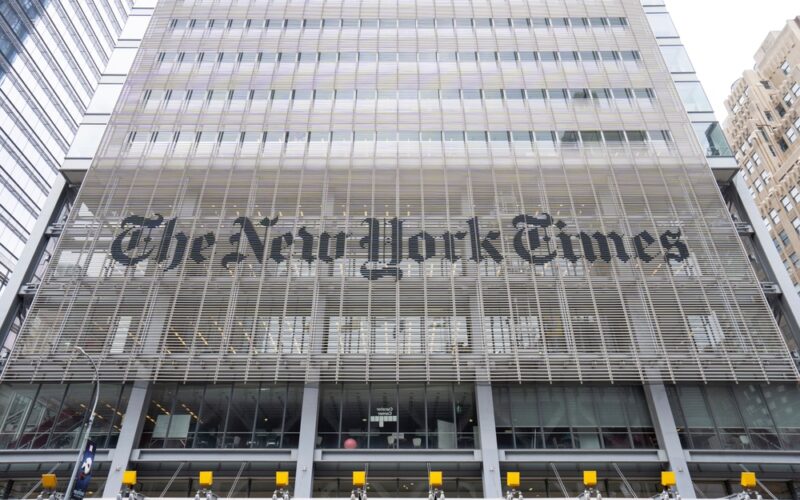President Trump’s initial $15 billion defamation complaint against the New York Times, three of its reporters and Penguin publishing company was thrown out of court, in part, because Trump was using it as “a protected platform to rage against an adversary.”
Trump’s amended lawsuit in Florida federal court alleges that two Times articles and a book published by Penguin and authored by two of the Times reporters contain false and defamatory statements. This lawsuit has the potential to be a journalistic bonanza allowing the Times to dig deeply into Trump’s shady past. This is because the sure-fire way to win a defamation case is to prove what is claimed to be defamatory is in fact true.
As a lawyer, I defended the Albuquerque Journal, the leading newspaper in New Mexico, in defamation lawsuits filed against it relating to a series of articles exposing organized crime infiltration into government entities in the Southwest United States. The articles were in response to the mob killing of Arizona investigative reporter Don Bolles. The Journal chose to vigorously defend the lawsuits with a truth defense designed to prove that the individual plaintiffs were in fact connected to the mob.
Despite Trump’s claim for an exorbitant $15 billion in damages, the Times has enormous leverage in pursuing its truth defense. Trump’s allegations of defamation are so broad that he has opened up his entire life to scrutiny. In defending Trump’s lawsuit, the Times and the other defendants have the right to take testimony and demand documents not only from Trump but also from third parties. The possibilities here are endless.
Trump claims as defamatory the statement that “[t]he producers [of the Television show “The Apprentice”] would also need to invent a version of Donald Trump that did not actually exist — measured, thoughtful and endlessly wealthy.” One way to prove the truth of that statement is to subpoena from MGM, the owner of the outtake tapes of “The Apprentice” that NBC never aired on television.
According to reports of others who worked on “The Apprentice,” these tapes capture Trump making lewd and abusive comments about female contestants, using the N-word and show that skillful editing was what made Trump appear “diligent, measured and polite.” MGM is bound by contract not to release these outtake tapes, but such a contractual arrangement is not a legal obstacle to a subpoena to defend a defamation case.
Trump opens wide the door to discovery in his claim that the title of a 2024 New York Times article, “For Trump, a Lifetime of Scandal Heads Toward a Moment of Judgment” is defamatory. This alleged defamation gives the Times carte blanche to dig up every Trump scandal.
Notably, this could include scandals not yet explained. For example, we know that in 2004 Trump bought the former Maison de L’Amitié in Palm Beach for $41.35 million. In 2008, Trump sold the property to Russian oligarch Dmitry Rybolovlev for $95 million, more than twice what he paid for it. Was this a money laundering scheme? Was there any connection to Jeffrey Epstein who Trump bid against for the property? — all fair game for defamation discovery.
Trump’s complaint also alleges as defamatory a variety of financial transactions that the Times reported as tax frauds. Included most notably is the allegation that Trump was involved in a scheme “to funnel some of” his father’s “cash to” himself and “his three siblings” “designed to evade the gift and estate taxes” through a sham company created for that purpose. This and similar transactions are proper subjects for discovery, including not yet released financial records and Trump tax returns.
The Times, like most media organizations in defamation cases, will be tempted to follow standard practice and immediately ask the court to dismiss Trump’s complaint under the Supreme Court’s well-established holding in New York Times vs. Sullivan. That precedent permits the press to report on public figures so long as it does not act with malice or reckless disregard of the truth.
There will, however, be plenty of time to bring a motion to dismiss. The Times, like Harvard University, should use the gift of Trump’s lawsuit to stand up for the First Amendment’s right to a free press. The Times should use it affirmatively to conduct an aggressive investigation into Trump’s unsavory past. News organizations like ABC, CBS and the Washington Post have already appeased Trump with multi-million-dollar settlements. The American public now needs a media hero, which will not back down when Trump challenges its right to print the truth.
Akerman was formerly an assistant special Watergate prosecutor and an assistant U.S. attorney for the Southern District of New York.








